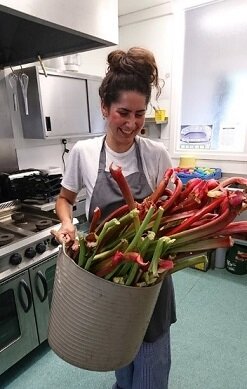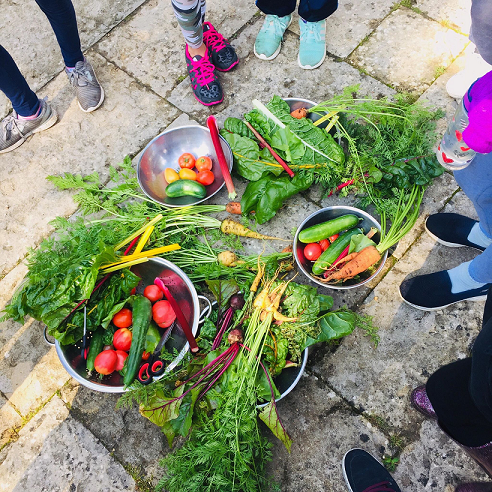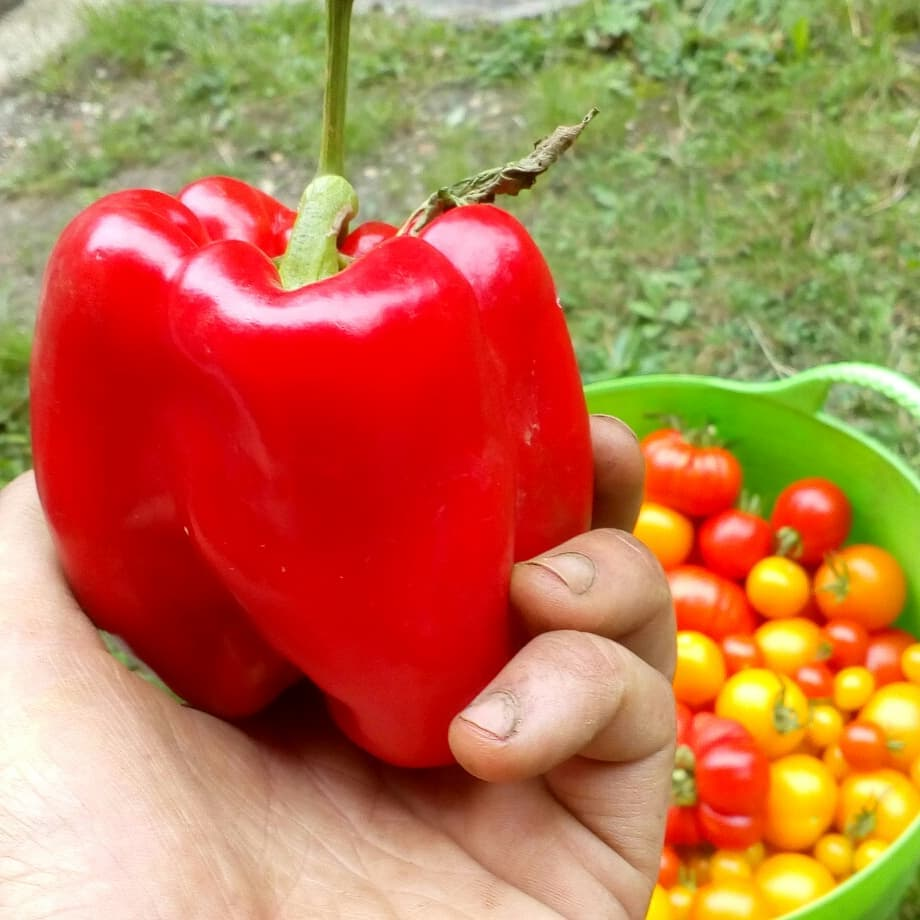Using homegrown produce
One thing that we have been working on for a long, long time here at the study centre, is maintaining a vibrant, fruitful edible garden that serves not only as an educational experience for our school groups and visitors, but that also provides as many ingredients as possible to our kitchen... And one sure way to totally bypass the unnecessary packaging of supermarket fruits and vegetables is to grown your own!
Since the start of our Big Grow project in 2017, our head gardener, Adam, has transformed our garden so that we can eat from it all year round. We have salads & greens, corn, raspberries, potatoes, peppers, carrots, tomatoes, cucumbers, broccoli, peas, pumpkins, parsnips, beans, celery, leeks, onions, garlic, herbs… the list goes on and on. Not to forget our many fruit trees on site too, that our groundsman David looks after throughout the year. Our garden is inspired by Permaculture – a practice that closely observes and mimics natural rhythms, patterns and behaviours in order to work with nature, not beside it, nor against it. By focusing a lot of energy into what, where, when and how we grow, we establish a deep-seeded connection with our produce. As humans, we have evolved to eat seasonally, and as cooks (domestic or professional) we are curious about our food; by developing a relationship with our ingredients whilst they’re in the ground, we build a strong understanding of processes involved with producing out ingredients, as well as an ever-growing gratitude for what’s on our plate. This appreciation makes us much more conscious and precious in the kitchen, from which, automatically, we tend to generate far less waste!
By using homegrown produce, we also reject the wasteful practices that are seen throughout our food supply chain. As mentioned above, we clearly avoid the needless, disposable packaging that wraps so much of the fresh produce sold to us in shops, but we also say goodbye to the food & resource waste associated with industrial farming, large-scale processing, global transportation and rigid supermarket practices like ‘best before’ dates and strict cosmetic standards. Hurrah for our beautiful garden!




